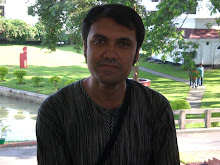The State Department released its Country Reports on Human Rights Practices for the year 2007 on Tuesday.
The report said the ongoing anticorruption drive had popular support but raised concerns about whether due judicial process was being followed in high-profile corruption cases.
It also highlighted the interim government's attempts to exile former prime ministers Sheikh Hasina and Khaleda Zia.
"The Emergency Powers Rules of 2007, imposed by the government in January and effective through year's end, suspended many fundamental rights, including freedom of press, freedom of association, and the right to bail," the report said.
"The government imposed unofficial house arrests on former prime ministers Sheikh Hasina and Khaleda Zia and made repeated efforts in the first six months of the year to force them into exile."
"Eventually, the government arrested both women on corruption charges, and at year's end they were awaiting trial".
The country report criticised restrictions on media.
Newspaper ownership and content were often subject to direct restriction by security and intelligence agencies, the State Department said, adding that journalists reported being cautioned frequently against criticising the government or the military.
On curtailing of individual and political freedoms alongside curbing freedom of press, the report said: "Individuals were not able to criticise the government publicly without fear of reprisal."
"The EPR suspended indoor and outdoor political gatherings, allowed the government to take legal action against critical editors and journalists, and allowed authorities to compel the broadcast or publication of stories supporting the government."
On extrajudicial and custodial deaths, the US State Department report said: "While there was a significant drop in the number of extrajudicial killings by security forces, they were accused of serious abuses, including custodial deaths, arbitrary arrest and detention, and harassment of journalists."
Using countrywide data from
"The deaths, many under unusual circumstances, occurred during police operations or while the accused were in custody. The government, however, often described these deaths as crossfire killings, occurring in exchanges of gunfire between the RAB or police and criminal gangs," the report said referring to findings of local human rights organisations.
According to Human Rights Watch, joint forces held suspects illegally at unofficial places of detention where they interrogated, often abused, and in some cases forced suspects to sign confessions before releasing or presenting them to a magistrate, the report said.
The US State Department reported that the use of torture and abuse, including threats, beatings, and the use of electric shock, during arrests and interrogation increased after the declaration of the state of emergency.
The government rarely charged, convicted, or punished those responsible, and a climate of impunity allowed such abuses by security agencies to continue, it said.
On arrests, the report said the government reported arresting more than 300,000 persons between January and August, an arrest rate approximately 15 percent higher than in 2006.
"The majority of those arrested were released within a day or two."
No reaction is yet to be forthcoming from the government on the US State Department's report.
"I have not seen the report yet. I have to read the report first and then react," foreign secretary Md Touhid Hossain told bdnews24.com Wednesday.
Chief adviser Fakhruddin Ahmed and foreign adviser Iftekhar Ahmed Chowdhury are currently in the Senegalese capital
Thursday, March 13, 2008
HUman Rights under EPR
Subscribe to:
Post Comments (Atom)

No comments:
Post a Comment